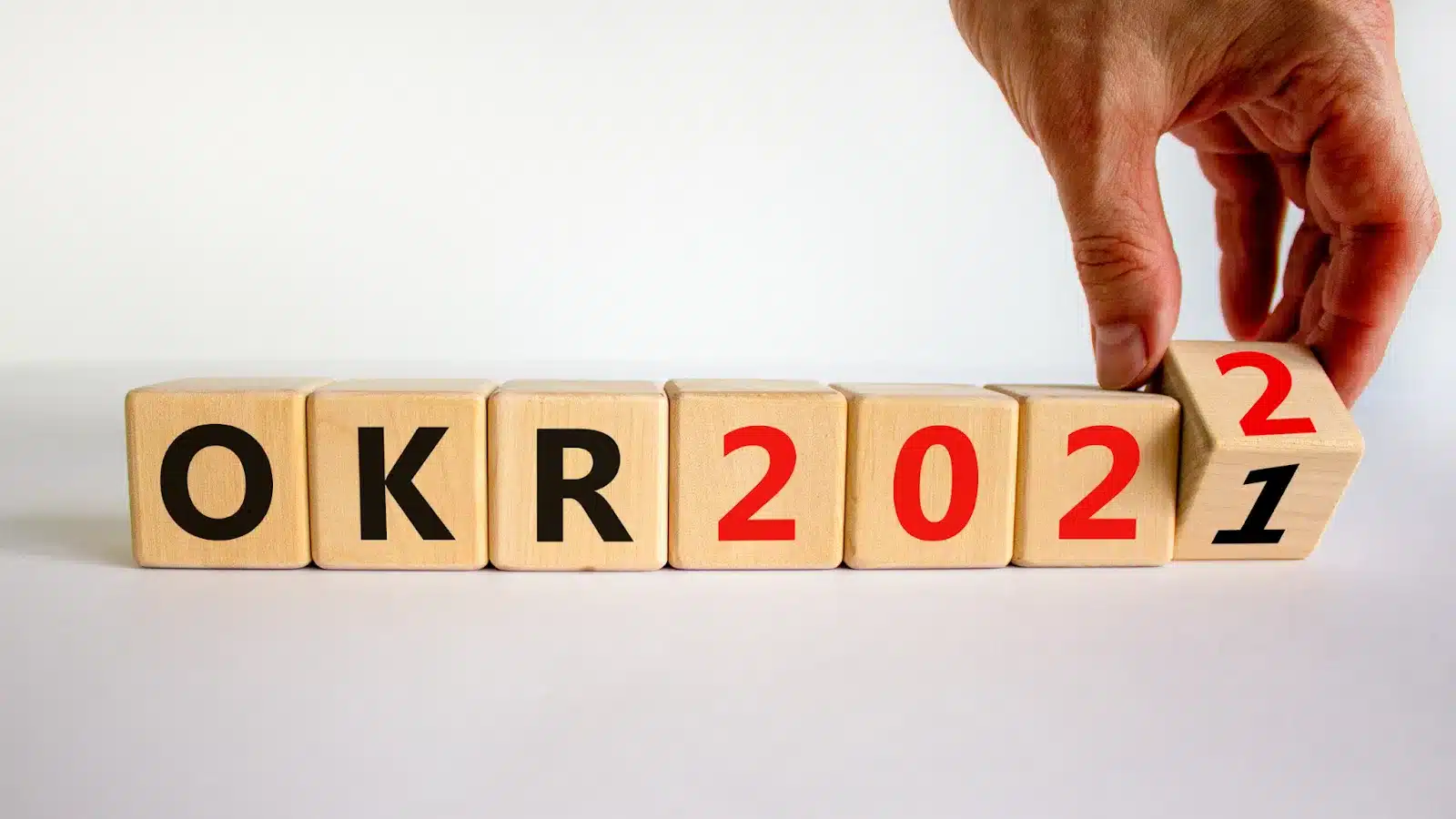“To win in the global marketplace, organizations need to be more nimble than ever before.” – John Doer’s Measure What Matters.
OKR software is designed to engage the teams effectively and align organizational goals with individual goals to promote the company’s vision and growth.
Many leading companies have adopted the OKR framework to manage better and achieve their goals. OKRs bring hypergrowth through agility, high commitment and focus.
However, early adopters often use spreadsheets to track and manage OKRs across their teams. This leads to organizations failing to implement OKR properly because they don’t have a proper system to track progress and follow up with their employees to check-ins on their OKRs.
Spreadsheets also fail because as teams grow and the goals become more complex and interlinked, using spreadsheets to track goals requires more manual effort and a messy workflow.
OKR software can automate these processes and help the managers and the employees focus on what lies at the heart of the OKR framework – aligned and visible progress.
OKR Software – Used by 500+ Companies
Transform your managers into leaders through personalized coaching, bite-size learnings and make it super easy for them to have meaningful 1:1s, check-ins, and align goals(OKRs).
What happens when you track your goals with Spreadsheets [Manual Reporting of OKRs System vs Spreadsheets]
Most companies will start reporting OKRs on Excel, Google sheets, or PowerPoint as they are readily available and accessible.
This system requires them to create the goals, update them manually, and share them via email, Slack, or other communication channels.
You can create a sheet with objectives and key results separately and keep updating the sheets as each one of them is fulfilled.
At the same time, share access with others to update their progress within the same sheet. Managers may use the Objectives sheet or senior executives to check on.
With the Key Result sheet, you can focus on the tasks and execution process for them. This sheet can be shared with all to have a ready reckoner and update all their jobs regularly. A weekly meeting with the entire team can help you get alignment between the OKRs. This meeting can also help set goals for the next quarter or help you understand if there is any room for improvement.
Using spreadsheets may work during the initial phase when you are just about to embed the OKRs framework in your organization. But as you go deeper and try to understand the OKRs systems more and more, you will realize that it goes beyond mere goal setting and reporting.
The manual reporting system is time-consuming and challenging to track and manage the objectives.
Why is implementing OKRs through a spreadsheet messy?

The primary reason why OKRs reporting via spreadsheet doesn’t work is that you and your team cannot reap all the benefits of the OKRs framework through it.
Let us drill down more reasons.
- Goals cannot be included in the day-to-day working of the teams, who cannot be made aware of their performance in tandem with them.
- This may cause less employee engagement which makes tracking progress difficult.
- Tracking progress and reporting the same manually becomes time-consuming and may lead to errors.
- You may not be able to align or manage goals both horizontally and vertically across teams.
- Dependencies can be lost between lines.
OKR Software – Used by 500+ Companies
Transform your managers into leaders through personalized coaching, bite-size learnings and make it super easy for them to have meaningful 1:1s, check-ins, and align goals(OKRs).
Common Challenges of OKR management with spreadsheets
- It could be impractical to manage multiple spreadsheets across various teams.
- It is challenging to ensure strict compliance and participation of the team.
- The whole process can become cumbersome and time-consuming to manage.
- Cascading objectives and rolling up progress are not possible at all times.
- Manual tracking cannot be used for the agile approach.
Why should you use OKR software?

Better Alignment
Spreadsheets won’t help you and the team in aligning your goals more congruently. Goal setting and alignment are some of the fundamentals of the OKR system. With an OKR framework software, you can align and link inter-departmental objectives up to company-level goals and make it possible for every employee to view them. The employees can also view how they contribute towards these goals.
OKR Software – Used by 500+ Companies
Transform your managers into leaders through personalized coaching, bite-size learnings and make it super easy for them to have meaningful 1:1s, check-ins, and align goals(OKRs).

Better Visibility
A spreadsheet is accessible only to executives and department heads, but software can access each organization’s employees across all levels. The team members are aware of the strategic objectives for the OKRs system to perform better.

Tracking progress is more accessible.
With software dedicated to the OKR system, you can get reminders to upload the metrics, also updating the progress. But on a spreadsheet, the entire process is manual. With software, the updated information is shared with the whole team to have a better overall assessment.
More involvement from the team and reduced time spent in meetings
An OKR system enables the management to check weekly qualitative insights from every team. The teams also have the employee’s platform to submit their thoughts and feedback, leading to more engagement from each side. This streamlined workflow will reduce the exchange of emails for status updates and unnecessary meetings for the same. If you have a remote team, software with an OKR system becomes easy for everyone to track and report progress, learn here OKR Software VS Spreadsheets.

Develop qualitative confidence
The purpose of the OKR framework is to make progress towards the set goal and be accountable for the same. The progress made by individuals being visible and shared gives the organization a much-needed confidence booster for their goal achievement. This will also help raise issues or concerns regarding the particular process that a team or an employee faces even before it becomes more prominent. This helps in making the work environment stress-free and less waste of energy.
Supportive practices
An OKR software tool can have the best practices to support the team at every juncture through the OKR cycle. A spreadsheet needs to be updated at regular intervals. You won’t require periodic reminders for setting up new goals or new systems as the complete system is automated.
Have access to OKR expert
With a dedicated software tool, you may have access to an OKR expert to support you if you need the same. You may also have access to resources from various organizations to find answers or solutions to any problem you face.
Conclusion
OKR software enables your organizations to align organizational goals with individual goals using alignment dashboards and quantify the performance in real-time. Why use OKRs? OKR software offers the desired flexibility and is user-friendly with actionable dashboards and implementing OKRs. OKR Software VS Spreadsheets, it is impossible to do all this while using spreadsheets without spending a lot of time and effort manually tracking each OKR.








